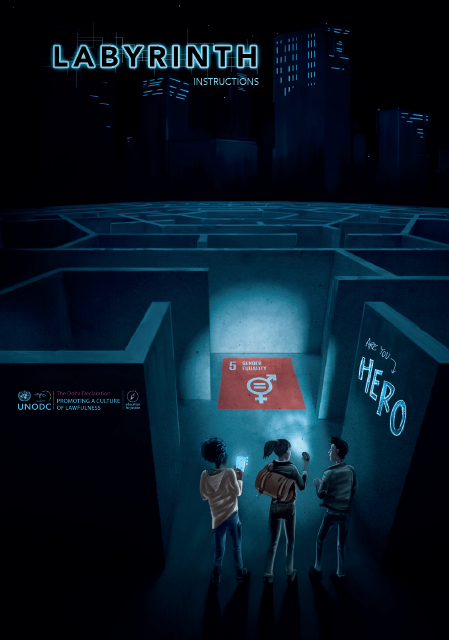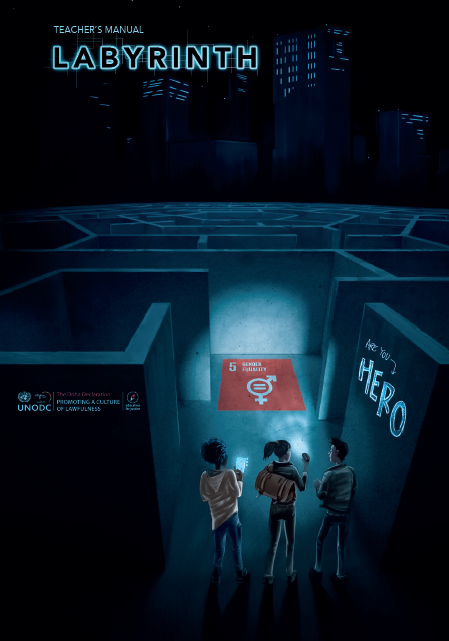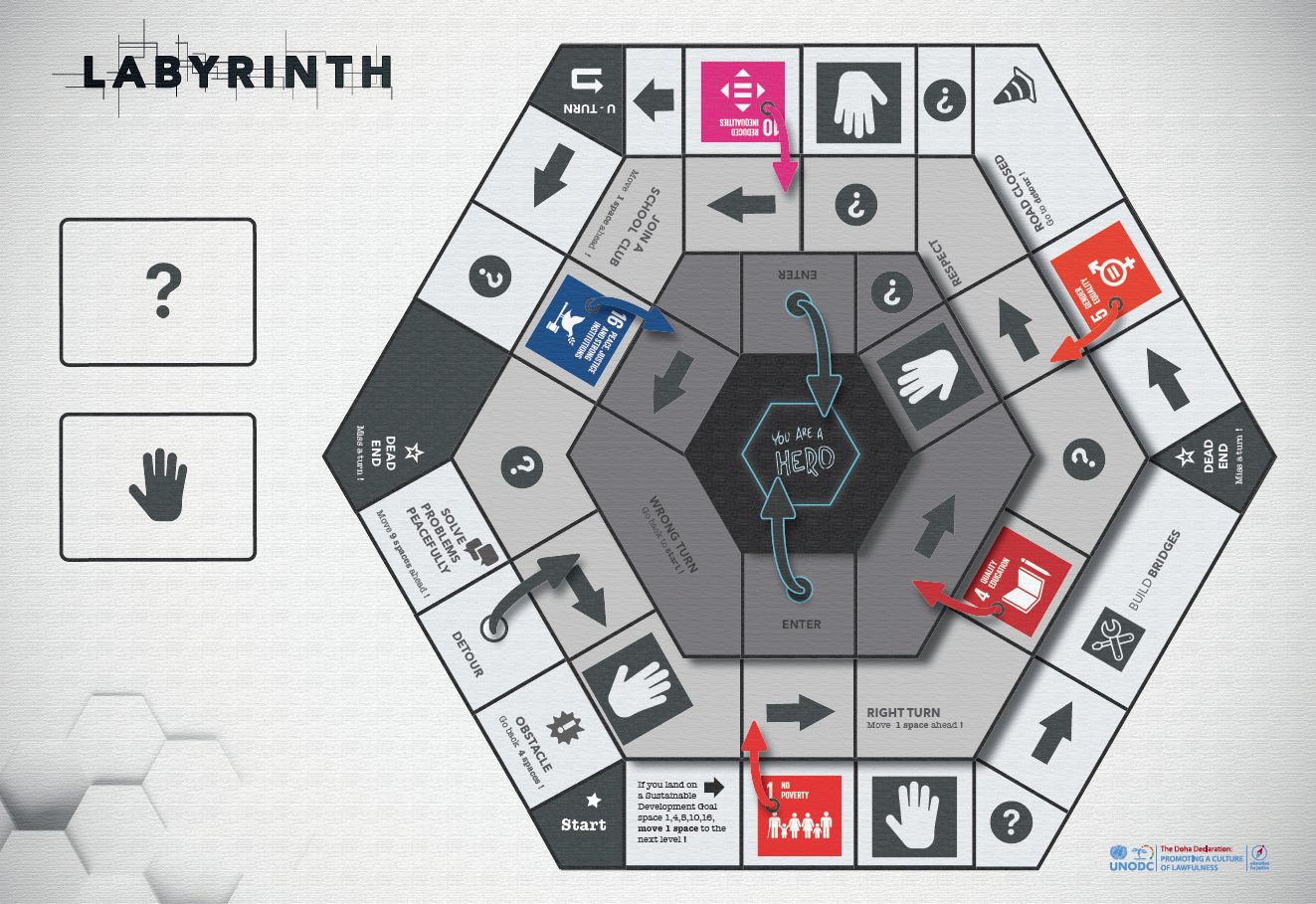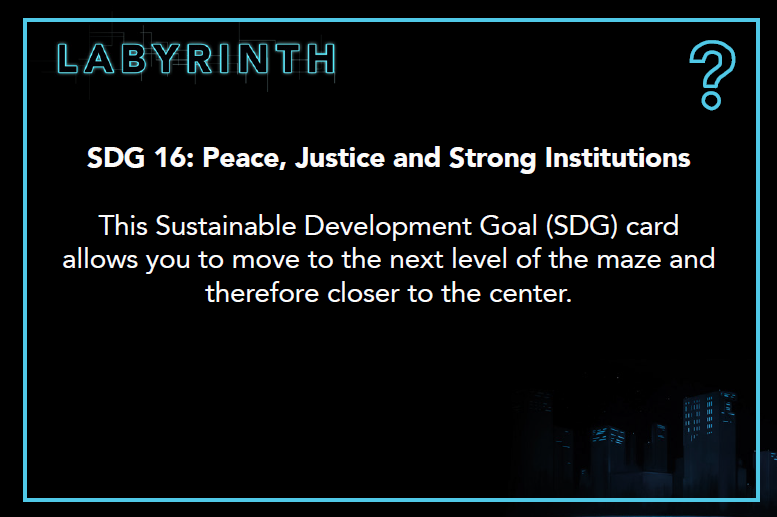 Terrorism and violent extremism
Terrorism and violent extremism
Violent extremism refers to the beliefs and actions of people who support or use violence or the threat of it to achieve ideological, religious or political goals. Preventing violent extremism through education involves equipping students with the knowledge, skills, and dispositions needed to think critically separating fact from fiction, propaganda from persuasion.
Youth need to be able to foster independent judgement and have good decision-making skills understanding that their choices can have wide-ranging consequences. No one game or lesson can teach all these skills, but they can be introduced using game-based pedagogy as a starting point for the continuation of these critical conversations and follow-up lessons. The board game Labyrinth was created in the vision of a labyrinth and a maze. A labyrinth is an art form with ancient roots in many societies. As players make their way through the maze to the Labyrinth, the player will stop on a square on the maze and be asked to either draw a card or follow a set of directions. Each card or space on the maze suggests an action or challenge or choice that relate to the Sustainable Development Goals.
The game addresses the following learning outcomes, best achieved by teacher follow-ups with suggested extension activities in the lesson plan. Youth will be able to:
- Challenge stereotypes
- Choose actions that promote tolerance and well-being
- Foster independent judgement and critical thinking
- Recognize propaganda and evaluate messages encountered online
- Analyze scenarios related to violent extremism, including the risk involved
- Identify risk and protective factors and their impact on resilience
Goal of the game
The goal of the game is for players to successfully navigate the maze to achieve hero status. As players make their way through the maze, they face choices, challenges, and opportunities. They must make appropriate choices and find their way in a maze where there may be conflicting paths that lead to tolerance and empathy, but also to violence and radicalization.
Game materials for download
Developed with the support of E4J by:





